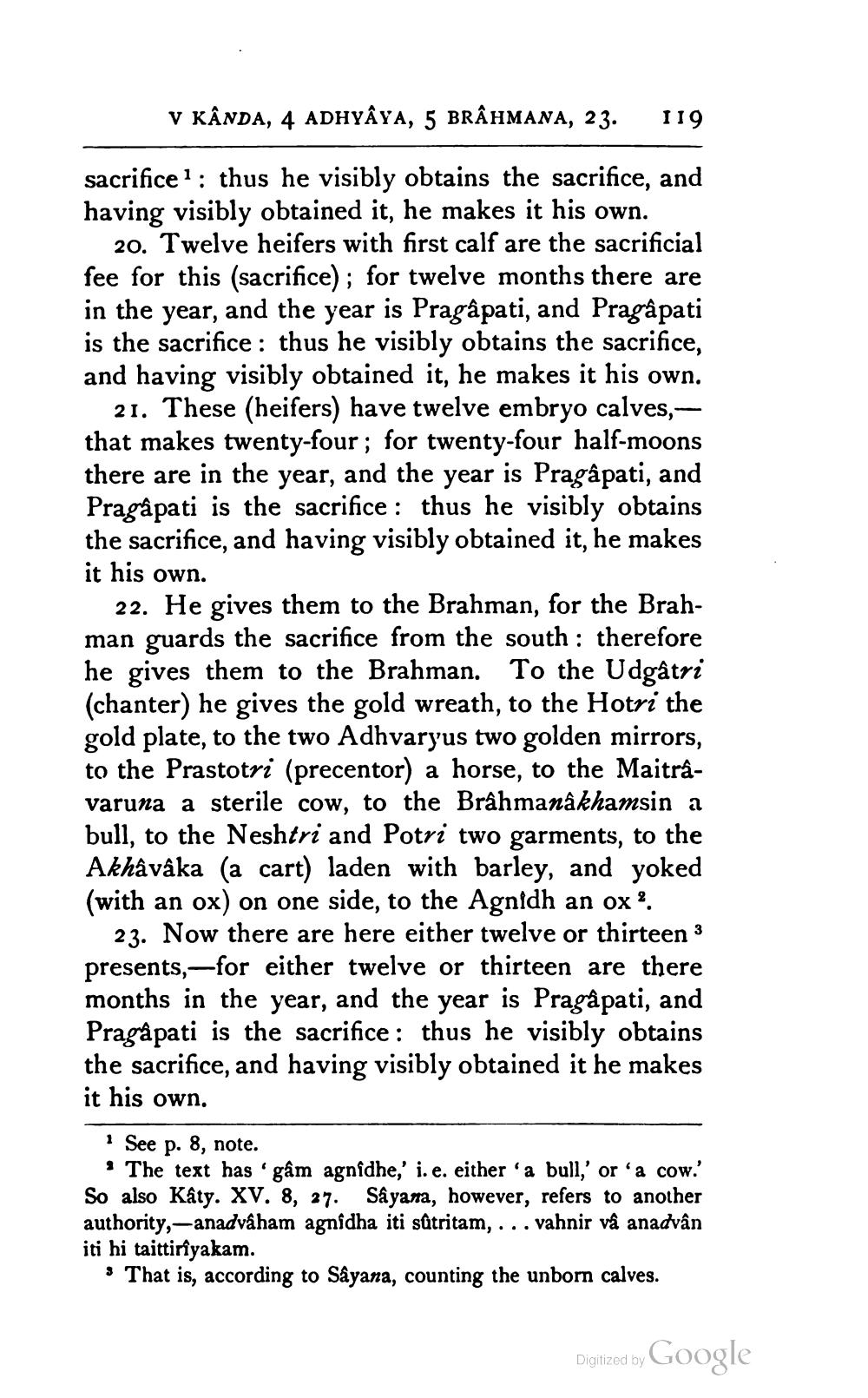________________
V KÂNDA, 4 ADHYAYA, 5 BRÂHMANA, 23.
119
sacrificel : thus he visibly obtains the sacrifice, and having visibly obtained it, he makes it his own.
20. Twelve heifers with first calf are the sacrificial fee for this (sacrifice); for twelve months there are in the year, and the year is Pragâpati, and Pragâ pati is the sacrifice : thus he visibly obtains the sacrifice, and having visibly obtained it, he makes it his own.
21. These (heifers) have twelve embryo calves,that makes twenty-four; for twenty-four half-moons there are in the year, and the year is Pragâpati, and Pragâpati is the sacrifice : thus he visibly obtains the sacrifice, and having visibly obtained it, he makes it his own.
22. He gives them to the Brahman, for the Brahman guards the sacrifice from the south : therefore he gives them to the Brahman. To the Udgâtri (chanter) he gives the gold wreath, to the Hotri the gold plate, to the two Adhvaryus two golden mirrors, to the Prastotri (precentor) a horse, to the Maitravaruna a sterile cow, to the Brâhmanâkhamsin a bull, to the Neshtri and Potri two garments, to the Akhâvâka (a cart) laden with barley, and yoked (with an ox) on one side, to the Agnidh an ox?
23. Now there are here either twelve or thirteen 3 presents,-for either twelve or thirteen are there months in the year, and the year is Pragâ pati, and Pragapati is the sacrifice: thus he visibly obtains the sacrifice, and having visibly obtained it he makes it his own.
See p. 8, note.
The text has 'gâm agnidhe,' i. e. either a bull,' or a cow! So also Kâty. XV. 8, 27. Sâyana, however, refers to another authority,-anadváham agnidha iti sâtritam,... vahnir va anadvân iti hi taittirîyakam.
* That is, according to Sâyana, counting the unborn calves.
Digitized by Google




